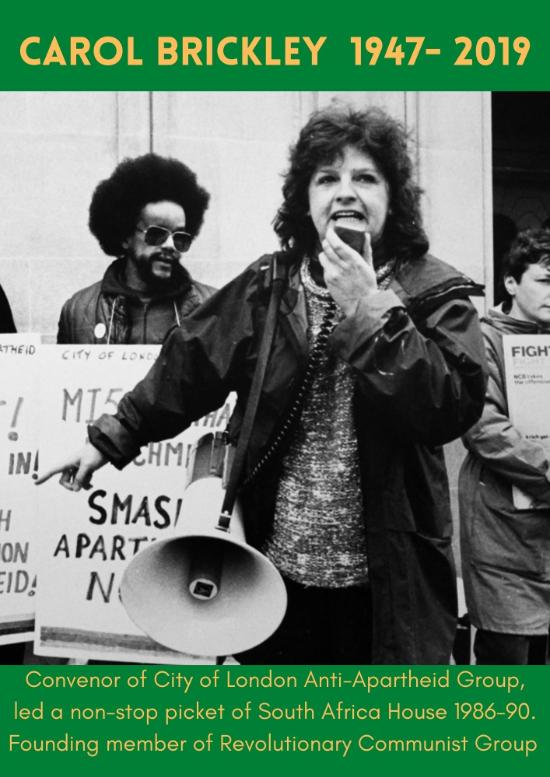Fannie Lou Hamer 1917-1977
Fannie Lou Hamer was a key voice in the civil rights movement in the US in the 1960s and 1970s. The granddaughter of slaves, she was born in the south in Montgomery, Mississippi, and at the age of six she joined her family in picking cotton. She left school at 12 to work, becoming the plantation time keeper as she was the only worker who could read and write. The racist sharecropping system that dominated the southern states saw large land owners employ former slaves and their families to work on plantations for a small ‘share’ of the crop whilst they creamed off the profits. It was known as ‘slavery by another name’ due to sharecroppers being economically shackled to the land.
While undergoing a surgery to remove a tumour in 1961, Hamer received a hysterectomy by a white doctor without her consent. Shamefully, forced sterilization of black women was common place and served to reduce the black population, it was so common it was referred to ‘Mississippi appendectomy’.
Hamer attended a civil rights meeting led by co-activist James Forman of the student non-violent coordination committee (SNCC) which was set up in 1960 to support and coordinate actions breaking segregation such as Freedom rides and voter registration. Hamer was enraged by the efforts to deny black people the right to vote and became a SNCC organiser. In 1962 she led 17 volunteers to register to vote: they were denied due to an unfair literacy test and harassed so much that even on the way home they were all fined by police for the bus being ‘too yellow’. For daring to register to vote she was fired from her job and had to repeatedly move her family due to attacks by the Ku Klux Klan, and other racist mobs. On one occasion she was shot at 15 times in a drive-by assault. Nevertheless she continued to organise for voter registration, exposing and opposing racist mechanisms such as the requirement to have poll tax receipts, designed to stop black and first nations people from voting.
One year later whilst doing SNCC campaign activity, she was arrested alongside others for attempting to be served in a cafe and sitting in a ‘whites only’ bus stop. She was brutally beaten and sexually assaulted by the police, leaving lifelong damage. In 1964 Hammer co-founded the Mississippi Freedom Democratic party , opposing the all-white Democratic Party. In the same year she announced her candidacy for the Mississippi House of Representatives but was barred from the ballot. A year later, alongside Victoria Gray and Annie Devine she was one of the first black women to stand in the U.S. Congress. Though she was often ridiculed because of her deep southern accent and lack of formal education, she was backed by prominent civil rights activists and revolutionaries including Ella Baker and Malcolm X. She was active in Martin Luther King’s Poor people’s march on Washington and began to work on the issue of land ownership, opposing the racist, parasitic sharecropping system. In 1969 she founded the Freedom Farm co-operative and she began a ‘pig bank’, raising money to provide free pigs to black farmers and buying hundreds of acres of land for black farmers to own and farm collectively.
In one of her speeches she questioned ‘Is this America, the land of the free and the home of the brave, where we have to sleep with our telephones off the hooks because our lives are threatened daily because we want to live as decent human beings in America?’
(see https://www.womenshistory.org/education-resources/biographies/fannie-lou-hamer





